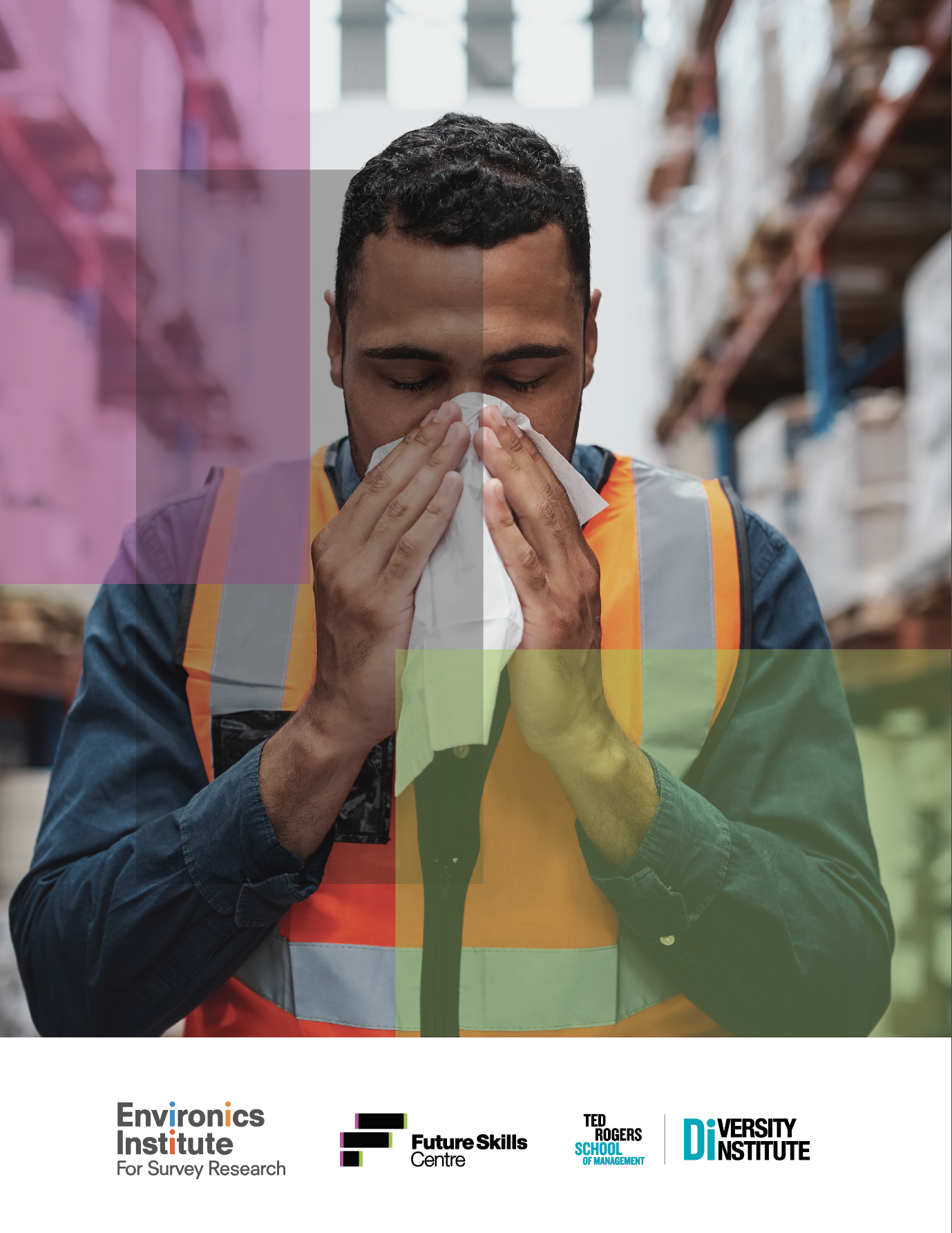Here’s how we can stop sick people from going into work

Here’s how we can stop sick people from going into work
The following op-ed was published in The Toronto Star on January 29, 2022.The full report from the Survey on Employment and Skills can be found here.
Andrew Parkin is the executive director of the Environics Institute for Survey Research
It’s a big day at work. A major presentation. Or a budget meeting. Or your report to the boss. Your chance to shine. You don’t want to miss it.
And you won’t miss it. Despite the fact that you just woke up feeling sick. A cough, a cold, a headache, a sore throat. Bad timing. But you can still make it to the office. A little aspirin and some hot tea are all you need to get through the work day.
This scenario will sound familiar to countless workers in Canada. Our survey finds that, prior to the pandemic, one in two Canadians who woke up on a workday feeling a little sick would have gone into work anyway. And a lack of paid sick days is not the main reason why.
That doesn’t mean paid sick days aren’t important — they are. Many workers, especially those with less job security and who earn lower incomes, go into work sick because they can’t afford not to.
But the most common reason why some workers choose to continue working when they are feeling sick is their commitment to their job (showing that admirable qualities sometimes have unintended consequences). Among those who went into work despite feeling the onset of a cold or flu, 43 per cent said it was because other people depended on them to be there to do their job, and they didn’t want to let them down. Many also expressed a fear of falling behind on their work, or a concern about not being seen as able to keep up. These reasons are more likely to be cited by more securely employed workers, including those earning higher incomes, those with a college diploma or university degree, and those working as professionals and executives or who have office or clerical jobs.
To limit the spread of viruses in the workplace, we therefore need two approaches. The first is the providing paid sick days for all workers (including those working part-time or on temporary contracts). The second is changing our workplace culture, so that workers who have the option of taking time off don’t feel that, by staying home, they will be letting down their employers, their co-workers or themselves.
Both employers and employees have a role to play. Employers and managers can set an example, by staying home when they themselves are sick, rather than sending the signal that some people are too important to rest. They can also take advantage of the tools we have learned to use during the pandemic when working from home. Once the pandemic ends, all workers can be given the option to attend meetings — including the most important ones — virtually, without worrying about missing out on key assignments or decisions.
Employees, meanwhile, can, in as friendly a way as possible, let it be known that co-workers don’t need to drag themselves to work coughing and sneezing in order to be seen as dedicated team players. Over the past two years, project teams, no less than bosses, have learned that they can keep things moving despite being out of the office. New work arrangements that seemed temporary when COVID-19 first arrived can become the new norm, helping to prevent a new COVID variant or new disease from spreading.
For those who can’t do their jobs from home — including front-line workers delivering key services to the public — the solution lies elsewhere: in investing to build more capacity and redundancy into the system, so that things don’t start to fall apart when flu season hits and people need to call in sick.
It would be nice to think that these new rules and habits will easily fall into place, now that we have all learned the hard lessons about how easily illnesses can spread. But our survey warns us otherwise. Despite the best efforts of public health officials to emphasize the need to self-isolate when feeling ill, two in five workers in Canada say they have gone to work sick at least once in the past 12 months (leaving aside those who were always working from home).
If we want to ensure that our workplaces stay safe, once the immediate COVID-19 emergency is over, we have to build a new type of work environment — one where someone who wakes up in the morning feeling sick knows they can stay home to rest without the fear of missing out.
Like what you're reading? With our bi-monthly e-newsletter, you can receive even more with the latest details on current projects, news, and events at the institute.
Subscribe